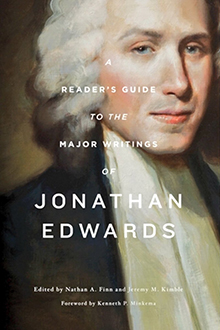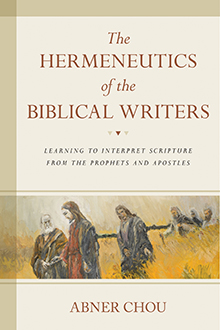 |
 |
 |
 |
A Reader’s Guide to the Major Writings of Jonathan Edwards by Nathan Finn and Jeremy M. Kimble (Crossway, 2017 $21.99)
No American wields more theological influence on evangelical than Jonathan Edwards. Yet if you ask around, you’ll find few Christians — even those of us who claim his theological lineage — actually read much of his work. This shouldn’t surprise you.
You can be forgiven for hesitating at the otherworldly size of the Edwards library or writing — illustrated recently by the completion of Yale University Press’s 26-volume of collected works.
A new book, A Reader’s Guide to the Major Writings of Jonathan Edwards, forms a welcome aide in accessing Edwards’s works.
You might find use — and in so doing fulfill the book’s purported goal — to read these classic works of Edwards and allow the contributors to A Reader’s Guide help you access and understand what you’re reading.
Becoming a Welcoming Church by Thom S. Rainer (B&H Publishing Group, 2018, $12.99)
Review by Caleb T. Shaw
LifeWay President Thom Rainer provides the church with a practical guide for ministry in Becoming a Welcoming Church. With an extensive background in church consultation, Rainer is an expert on first-time guest interactions at new churches. He addresses common problems guests encounter when they visit a church for the first time, such as poor signage, unsafe areas for children, and dirty facilities.
One common problem Rainer says he has encountered countless times is a bad website or one that contained inaccurate information. According to Rainer, “Seven out of ten guests will go to a church website as a determinative factor in where they will choose to visit.”
Rainer also stressed the importance of making the church facility safe for children. As a part of the church’s gospel call to ministry, churches should take every precaution to keep children secure.
Whether you are a pastor, someone training for ministry, or a layperson, Becoming a Welcoming Church will help you better welcome guests to your church by fulfilling God’s call to love your neighbor.
Evergreen by Audrey Assad (© 2018 Fortunate Fall Records, $9.99 on iTunes)
Review by Matt Damico
Since her debut album in 2010, Audrey Assad has been known for her subdued, piano-centric sound and the clarity of her voice. That sound still carries much of her most recent album, Evergreen.
The album signals a move toward a more electronic sound — heard especially in tracks like “Deliverer” and “River” — though there are still tracks arranged simply enough to let the quality of Assad’s voice pierce through. One such song is “Little Things with Great Love,” with its beautiful melody and a pleasantly unpredictable chord progression.
Some of Assad’s lyrics are pure biblical poetry worthy of repeated listening. At other times, Assad, a Roman Catholic, is slightly less than trustworthy in her writing. Even so, Assad is one of the original and unique writers in the world of Christian music; listeners can and should enjoy this album.
The Hermeneutics of the Biblical Writers by Abner Chou (Kregel Academic, 2018, $23.99)
Review by Andrew J.W. Smith
Reading the Bible is hard. It’s not only very long (over 700,000 words, depending on your translation), its historical, cultural, and literary background often eludes us. Even worse, simply looking up an unfamiliar city, town, or person in a commentary or Bible dictionary doesn’t usually help make sense of Scripture’s broad, nuanced narrative. We need a way to connect the dots, to fit the pieces together.
In his new book, The Hermeneutics of the Biblical Writers, Abner Chou provides the road map to traversing the complex terrain of biblical interpretation. Chou, John F. MacArthur Endowed Fellow at The Master’s University in Santa Clarita, California, argues the best way to read the Bible is by patterning one’s interpretation off the biblical writers themselves. This requires careful attention to the precise way they frame their arguments and employ previous revelation, he says.
“The prophetic hermeneutic continues into the apostolic hermeneutic, which is the Christian hermeneutic,” Chou writes. “We can learn how to study the sacred text from what the biblical writers instructed us to do as well as from seeing them use Scripture, provided we understand what they were doing.”
Many scholars accuse the biblical writers of bad exegesis. The New Testament frequently seems to quote the Old Testament in a way that doesn’t match the original intent — such as Matthew applying “Out of Egypt I called my son” (Hos 11:1, Matt 2:15) to Jesus instead of Israel. The apostles, these scholars argue, clearly interpret the Bible much more liberally and creatively than conservative seminaries teach their students to.
Other scholars try to account for apparent inconsistencies between the original meaning of an Old Testament text and the way it is quoted in the New Testament with the concept of sensus plenior (that God intended a deeper meaning behind Scripture the authors did not). Neither option wrestles adequately with the hermeneutical sophistication the biblical writers consistently display, according to Chou.
“As opposed to writing ‘better than they knew,’ the prophets wrote better than we give them credit for,” he says.
Chou’s approach relies upon tracing the “authorial logic” at every stage of progressive revelation. Literal-grammatical-historical hermeneutics is not a modern concept retroactively applied to Scripture. Rather, it is how the prophets and apostles themselves read their Bibles. Christians must line up the way they interpret the biblical revelation with how the writers themselves did, which Chou calls a “hermeneutic of obedience.”
“[The prophets and apostles] are not hermeneutical ignoramuses who have abused the Scripture,” he writes. “We do not know better than them. Rather, being moved by the Holy Spirit, they were brilliant — and we ought to humbly follow them. Their faithful hermeneutic provides us the certainty that the way we were traditionally taught to interpret the Bible is the method the Bible upholds.”




